
KOREAN JOURNAL OF PARASITOLOGY
Scope & Guideline
Innovating Solutions for Parasitic Diseases
Introduction
Aims and Scopes
- Parasitic Disease Research:
The journal emphasizes the study of various parasitic diseases affecting humans and animals, including their epidemiology, clinical manifestations, and treatment approaches. - Molecular and Genetic Studies:
There is a strong focus on molecular biology and genetics of parasites, investigating genetic diversity, resistance mechanisms, and the development of novel diagnostic tools. - Ecological and Environmental Impacts:
Research on the ecological aspects of parasitology, including the impact of environmental changes on parasite transmission and host-parasite interactions, is a significant area of focus. - Case Reports and Clinical Findings:
The journal publishes detailed case studies that highlight unique or rare presentations of parasitic infections, contributing to clinical knowledge and awareness among healthcare professionals. - Innovative Diagnostic Techniques:
The journal promotes studies on the development and evaluation of new diagnostic methods for detecting parasitic infections, enhancing accuracy and efficiency in clinical settings.
Trending and Emerging
- Molecular Mechanisms of Pathogenesis:
There is a growing interest in understanding the molecular mechanisms through which parasites cause disease, including host immune response evasion and cellular signaling pathways. - Vector-Borne Diseases:
Research on parasites transmitted by vectors, particularly ticks and mosquitoes, is on the rise, highlighting the importance of understanding vector ecology and control measures. - Novel Therapeutic Approaches:
Emerging studies are focusing on the development of new therapeutic strategies against parasitic infections, including the use of natural compounds and drug repurposing. - Impact of Climate Change on Parasitism:
The effects of climate change on the distribution and transmission of parasitic diseases are increasingly being studied, reflecting a broader environmental health perspective. - Immunological Responses to Parasitic Infections:
Research into the immunological aspects of parasitic infections, including vaccine development and host immune system interactions, is gaining more attention, driven by the need for effective prevention strategies.
Declining or Waning
- Traditional Helminth Studies:
Research focusing solely on traditional helminth infections has decreased, possibly due to a shift toward more complex interactions between parasites and hosts, or the emergence of novel parasitic threats. - Zoonotic Disease Surveillance:
Although zoonotic diseases remain critical, the frequency of studies specifically targeting zoonotic parasites in wildlife seems to be declining, which may reflect changing research priorities. - Historical Parasitology:
Studies examining historical or archaeological aspects of parasitology have become less common, suggesting a move toward contemporary issues and current disease dynamics. - Veterinary Parasitology:
Research in veterinary parasitology, while still relevant, appears to be less frequently published, possibly as the focus shifts to human health and emerging zoonotic diseases. - Public Health Policy and Education:
There is a noticeable reduction in articles focusing on public health policy related to parasitic diseases, indicating a potential gap in the discourse around policy implementation and education.
Similar Journals
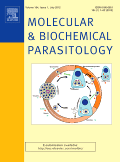
MOLECULAR AND BIOCHEMICAL PARASITOLOGY
Unraveling the Molecular Mysteries of Parasitology.MOLECULAR AND BIOCHEMICAL PARASITOLOGY is a renowned journal published by Elsevier, focusing on the crucial intersections of molecular biology and parasitology. Since its inception in 1980, this journal has aimed to advance our understanding of parasitic organisms at the biochemical and molecular levels, providing a dedicated platform for researchers studying host-parasite interactions, parasite genetics, and diagnostic methodologies. Although it currently holds a quartile status of Q4 in Molecular Biology and Q3 in Parasitology for the year 2023, it remains a vital resource within the academic community, boasting a variety of research articles, reviews, and case studies that explore innovative treatment strategies and the molecular biology of parasites. Researchers and students alike can benefit from the journal's contributions to the field, despite its traditional publishing model, as the content remains pivotal for ongoing studies and advancements in parasitology.
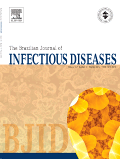
Brazilian Journal of Infectious Diseases
Connecting scholars and practitioners to combat infectious diseases.The Brazilian Journal of Infectious Diseases, published by Elsevier Brazil, is a premier open-access journal dedicated to advancing research and clinical practice in the field of infectious diseases. Since its inception in 2001, this journal has been pivotal in disseminating innovative studies and reviews that inform healthcare professionals and researchers alike. With an impressive impact factor reflected by its ranking in the second quartile for Infectious Diseases and third quartile for Medical Microbiology in 2023, the journal ranks #127 out of 344 in medicine – infectious diseases and #61 out of 140 in medical microbiology, showcasing its reputable standing in the scientific community. The Brazilian Journal of Infectious Diseases invites contributions that highlight significant findings, novel methodologies, and critical reviews aimed at enhancing patient care and public health initiatives. With an international readership and a focus on pressing issues in infectious diseases, it serves as an essential platform for knowledge exchange and collaboration among scholars and practitioners across Brazil and beyond. By reinforcing the importance of open access to scientific literature, this journal not only promotes transparency but also enhances the global discourse surrounding infectious diseases.
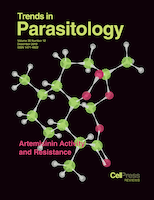
TRENDS IN PARASITOLOGY
Leading the charge in parasitology advancements.TRENDS IN PARASITOLOGY is a premier academic journal published by CELL PRESS, focusing on the dynamic field of parasitology and infectious diseases. With an ISSN of 1471-4922, this esteemed journal is recognized for its high impact within the research community, boasting a Q1 ranking in both the Infectious Diseases and Parasitology categories as of 2023. This places it among the top-tier journals in the field, as evidenced by its remarkable Scopus rankings, where it ranks #3 out of 79 in Parasitology and #29 out of 344 in Infectious Diseases. Spanning over two decades of scholarly contributions from 2001 to 2024, TRENDS IN PARASITOLOGY emphasizes the latest advancements, challenges, and innovative methodologies in parasitology, making it an invaluable resource for researchers, healthcare professionals, and students alike. With an increasing focus on open access initiatives, this journal not only promotes widespread dissemination of knowledge but also encourages collaboration across the global scientific community. Whether you are investigating novel interventions, exploring parasite evolution, or understanding host-pathogen interactions, TRENDS IN PARASITOLOGY remains at the forefront of research, driving forward the understanding of parasitic diseases.

SYSTEMATIC PARASITOLOGY
Championing high-quality research in parasitic sciences.SYSTEMATIC PARASITOLOGY, a premier academic journal published by Springer, serves as a vital resource in the field of parasitology. Since its inception in 1979, this journal has committed itself to advancing the understanding of parasitic organisms and their interactions with hosts, thus playing a significant role in both basic and applied research. With an impactful contribution to the scientific community—evidenced by its Scopus ranking and its position in the third quartile (Q3) within the Parasitology category—the journal provides a platform for high-quality, peer-reviewed research that spans a variety of topics from molecular biology to ecology. Although not currently open access, SYSTEMATIC PARASITOLOGY remains essential for researchers, professionals, and students who seek to stay at the forefront of parasitological studies and contribute to ongoing developments in the domain. Published in the Netherlands, it continues to attract a diverse international readership, fostering a collaborative scientific environment.

Parasites Hosts and Diseases
Advancing Knowledge on Parasitic RelationshipsParasites Hosts and Diseases is an emerging academic journal focusing on the intricate relationships between parasites, their hosts, and associated diseases. Published by the Korean Society of Parasitology in collaboration with Seoul National University College of Medicine, this journal is a significant contribution to the fields of Infectious Diseases and Parasitology, and it has secured a place in the Q3 category for both disciplines as of 2023. With an ISSN of 2982-5164 and an E-ISSN of 2982-6799, this open-access publication aims to foster scholarly communication and provide a platform for researchers to disseminate their findings on critical issues related to parasitic infections and the pathogenesis thereof. Although it is still in the early stages of its history, the journal has already positioned itself as a useful resource within its field, with Scopus rankings showing it as 48th of 79 in Parasitology and 210th of 344 in Infectious Diseases, indicating its growing influence and the potential for impactful research. Situated in South Korea, and via its open-access model, Parasites Hosts and Diseases is committed to reaching a global audience of scientists, healthcare professionals, and students, all dedicated to understanding and combating the challenges posed by parasitic diseases.
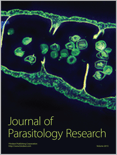
Journal of Parasitology Research
Shaping the Future of Parasitology ResearchJournal of Parasitology Research, published by HINDAWI LTD, is a pivotal open-access journal that has been disseminating groundbreaking research in the field of parasitology since 2009. With an ISSN of 2090-0023 and an E-ISSN of 2090-0031, this journal strives to provide researchers, professionals, and students with accessible and high-impact studies that advance understanding of parasitic diseases and their epidemiology. The journal currently holds a Q3 ranking in Infectious Diseases and a Q2 ranking in Parasitology, indicating its significant contribution to the academic community. Furthermore, with a Scopus ranking placing it at #39 in Parasitology and #186 in Infectious Diseases, it plays an essential role in shaping research directions in these fields. As an open-access journal, Journal of Parasitology Research enhances the visibility and accessibility of published works, ensuring crucial findings reach a global audience. With a focus on innovative research, the journal welcomes submissions that explore both theoretical frameworks and practical applications in parasitology, making it an invaluable resource for those dedicated to combating parasitic infections.

REVISTA BRASILEIRA DE PARASITOLOGIA VETERINARIA
Advancing Veterinary Health Through Innovative Parasitology ResearchThe REVISTA BRASILEIRA DE PARASITOLOGIA VETERINARIA, published by the BRAZILIAN COLLEGE OF VETERINARY PARASITOLOGY, serves as a premier platform for disseminating groundbreaking research and advancements in the field of veterinary parasitology. Since its transition to Open Access in 2007, the journal has significantly contributed to fostering global collaboration and knowledge sharing among researchers and practitioners. Situated in Brazil, this esteemed journal features a diverse range of studies focused on the latest developments and challenges in veterinary and parasitological sciences. With a commendable Q3 ranking in Parasitology and Q2 ranking in Veterinary (miscellaneous) for 2023, it is recognized for its growing impact in the academic community, particularly holding positions in the 60th percentile for General Veterinary and 37th percentile in Parasitology. Researchers, professionals, and students interested in enriching their understanding of veterinary parasitology will find this journal a vital resource, as it bridges regional expertise with global research trends, thus embracing a holistic approach to veterinary health.
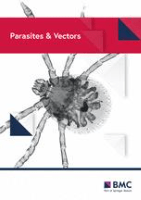
Parasites & Vectors
Connecting researchers to tackle global health challenges.Parasites & Vectors is a leading open access journal dedicated to the dissemination of high-quality research on the vectors of infectious diseases and their parasitic agents. Published by BMC in the United Kingdom, this journal has been at the forefront of its field since its establishment in 2008, contributing to our understanding of vector-borne pathogens through its rigorous peer-reviewed articles. With a notable impact factor and categorized in the top quartile (Q1) in both Infectious Diseases and Parasitology, it is an essential resource for researchers, professionals, and students worldwide. The journal ranks impressively within various categories, holding a position of 7th out of 194 in Veterinary General Veterinary and 12th out of 79 in Immunology and Microbiology Parasitology, indicating its significant contribution to the sciences. Accessible to all, Parasites & Vectors supports the global pursuit of knowledge in epidemiology and disease control, making it an indispensable platform for sharing innovative findings and fostering collaboration within the scientific community.
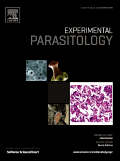
EXPERIMENTAL PARASITOLOGY
Unraveling Host-Parasite Dynamics for a Healthier FutureEXPERIMENTAL PARASITOLOGY, published by Academic Press Inc Elsevier Science, is a prominent journal in the domains of immunology, infectious diseases, and parasitology, with roots extending back to 1951. This journal, bearing the ISSN 0014-4894 and E-ISSN 1090-2449, serves as a critical conduit for sharing advancements in the understanding of parasite biology, host-parasite interactions, and the immunological responses elicited by parasitic infections. Although it currently operates under a subscription model without open access options, its rigorous scholarly content is vital for researchers and practitioners alike looking to stay informed on the latest developments and applications in the field. With a recent categorization as Q3 in key scientific categories, including Infectious Diseases and Parasitology, and a Scopus ranking solidifying its relevance, EXPERIMENTAL PARASITOLOGY is an essential resource for those committed to advancing knowledge and solutions to parasitic diseases.

ACTA TROPICA
Elevating Standards in Tropical Research ExcellenceACTA TROPICA is a prestigious academic journal published by Elsevier, dedicated to advancing knowledge in the fields of Infectious Diseases, Insect Science, Parasitology, and Veterinary sciences. With an ISSN of 0001-706X and an E-ISSN of 1873-6254, it has established itself as a vital resource since its inception in 1945. The journal is recognized for its significant impact within the scientific community, boasting a Q2 ranking in Infectious Diseases and Parasitology, and a Q1 ranking in both Insect Science and Veterinary (miscellaneous) categories as of 2023. Specifically, it ranks #19 in Scopus for Parasitology and #129 for Infectious Diseases, underscoring its high visibility and relevance in these vital research arenas. ACTA TROPICA is a non-open access journal, ensuring high-quality peer-reviewed content that complements ongoing research and professional practices among scientists, researchers, and students. Explore groundbreaking studies and contribute to the ongoing dialogue within your field by selecting ACTA TROPICA as your next publication destination.